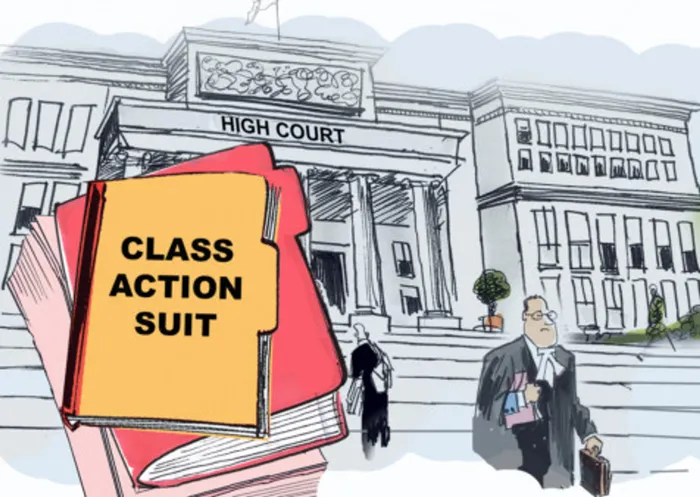Solidarity to fight GEPF’s changes to benefit calculations

Solidarity this week lodged a High Court application in a bid to overturn an “unlawful” decision that has resulted in members of the Government Employees Pension Fund (GEPF) receiving a reduced pension payout if they take early retirement or resign.
The trade union also lodged an application in the Pretoria High Court to have its case against the GEPF declared a class action suit, brought on behalf of more than 1.2 million public sector employees.
The Public Servants Association of South Africa (PSA) says it intends to file a separate application to force the GEPF to reverse its decision, and has invited the other public sector unions to become co-applicants.
In an affidavit filed with the court papers, Johan Kruger, the deputy chief executive of Solidarity, says the fund’s board of trustees made the change without, as required by the fund’s rules, consulting the Minister of Finance and the 15 employee organisations represented on the Public Service Co-ordinating Bargaining Council.
Solidarity does not sit on the bargaining council, because it represents 7 134 members of the public service, whereas, to be admitted, an organisation must represent at least 50 000 employees.
Kruger says the change in how withdrawal benefits are calculated resulted in a reduction in the benefit paid to members who resigned from April 1 last year, in the death benefits paid to members’ beneficiaries and in the pension-interest benefits paid to members’ spouses on divorce. (A pension interest is equivalent to the cash withdrawal benefit that would be payable had the member resigned on the date of the divorce.)
In a statement, the GEPF said it will defend the matter and will file an answering affidavit.
It has been compulsory since May 1996 for public sector employees to join the GEPF, which is a defined-benefit fund.
At issue is the calculation of a member’s “actuarial interest” in the fund on resignation. In terms of the fund’s rules, a member’s withdrawal benefit is calculated as the higher of the member’s:
• Contribution rate, final salary and years of pensionable service; or
• Actuarial interest in the fund.
The fund’s rules set out formulae for calculating the actuarial interest for members who resign before or after the age of 55. Each of the two formulae includes an “actuarial factor”, which, according to the rules, “is determined by the board [of trustees] acting on the advice of an actuary, and after consultation with the Minister [of Finance] and other employee organisations”.
Kruger says the fund’s trustees changed both actuarial factors in 2015 without consulting the employee organisations, and “presumably on the advice of the actuary and without consultation with the minister”. He says the fund’s rules do not empower the trustees to waive the requirement to consult employee organisations before making such changes.
“The decision to implement a revised set of actuarial interest factors violates the principle of legality and the rule of law.”
The affidavit includes an example of how the change in the factor affected a police captain who wanted to resign in July 2015. His actuarial interest was R2 689 861 based on the old formula. When it was recalculated a few months later using the revised factors, it decreased by R172 913, or seven percent, even though his salary had increased. As a result, the captain was forced to withdraw his resignation, the affidavit says.
Kruger says there is uncertainty about when precisely the GEPF decided to change the factors, and this has left Solidarity with the impression that the decision was taken “much later” than April 1 and implemented retrospectively. If that is the case, the GEPF “might very well commence action to recover so-called overpayments from members who still received payment of the benefits according to the previous set of actuarial factors”, he says.
Kruger’s affidavit states that, by failing to consult with employee organisations before implementing the revised actuarial factors, the GEPF “failed miserably in its duty to take procedurally fair administration action”, as required by the Promotion of Administrative Justice Act (PAJA).
Solidarity wants the High Court to exercise the authority granted to it in terms of PAJA to review and set aside the fund’s decision.
The union has asked the High Court to order the GEPF to:
• Recalculate all the resignation and death benefits paid to members and beneficiaries from April 1, 2015 using the actuarial factors that applied before that date;
• Pay members and beneficiaries the difference that results from the recalculation, plus interest of 10.25 percent a year from the date on which the benefits were paid to the date on which the difference is paid;
• Recalculate the pension interest of all members who were divorced since April 1, 2015 using the actuarial factors that applied before that date; and
• Pay non-member former spouses the difference that results from the recalculation, plus interest of 10.25 percent a year calculated from the date on which their share of the interest was paid until the date on which the difference is paid.
Kruger says, that, according to the fund’s 2014 actuarial valuation, the GEPF’s funding level is 121.5 percent, there are sufficient assets to cover the fund’s liabilities in full, and there are sufficient assets left to create a solvency and contigency reserve of R252 billion.
Leon Gilbert, the PSA’s national manager for collective bargaining, told Personal Finance that his union will bring its application on behalf of its more than 200 000 members. He says the PSA has written to the GEPF several times about the trustees’ decision.